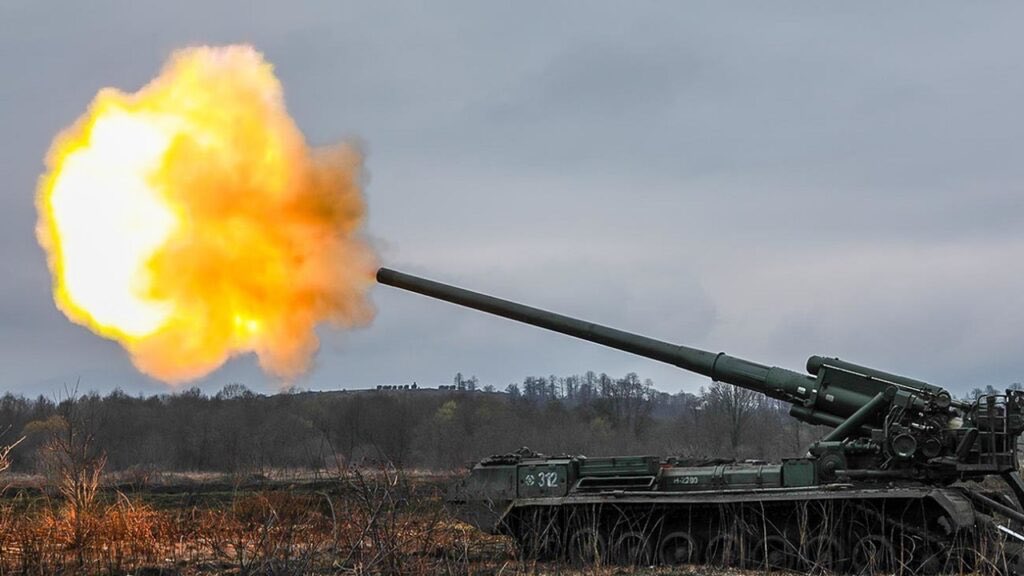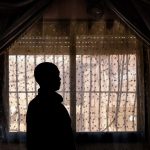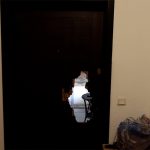Russia is moving large numbers of troops to Ukraine’s south for battles against the country’s forces through the newly occupied territories and Crimea, according to Ukraine’s deputy head of military intelligence.
If Russia won, it would try to capture more territory, said Vadym Skibitsky. “They are increasing their troop numbers, preparing for our counteroffensive [in Ukraine’s south] and perhaps preparing to launch an offensive of their own. The south is key for them, above all because of Crimea,” he said.
Russian troop movements come in response to Ukraine’s declared counteroffensive to liberate the southern occupied regions of Kherson and Zaporizhzhia.
Ukrainian forces have retaken dozens of villages and towns along the border, according to the region’s military governor, Dmytro Butrii, and are pushing towards Kherson’s regional capital.
The Kherson region stretches across Ukraine’s Dnieper river. Earlier this month, Ukraine carried out precision strikes using US-supplied weapons on the Antonovskiy bridge in the Kherson region, damaging a key Russian supply line. Washington’s Institute for the Study of War said Ukrainian forces and partisans also damaged the only two other bridges connecting occupied Kherson.
On Saturday, Ukraine’s military said it had killed scores of Russian soldiers and destroyed two ammunition dumps while fighting in Kherson.
Telling residents to stay away from Russian ammunition dumps, the first deputy head of the Kherson regional council, Yuri Sobolevsky, said that the “Ukrainian army is pouring it on against the Russians, and this is only the beginning”.
According to Skibitsky, Russia withdrew tactical groups of airborne forces from Donbas two weeks ago and moved them to occupied Kherson. Russia is also moving troops from its eastern military district, which was being used to attack Sloviansk, a town in Ukrainian-controlled Donetsk, and were in reserve in Russia’s southern Belgorod region.
The open-source investigative group, Conflict Intelligence Team, confirmed Skibitsky’s claim in part last week.
Meanwhile, in occupied eastern Ukraine, a prison holding Ukrainian prisoners of war was hit on Thursday night. Ukraine’s president, Volodymyr Zelenskiy, has denounced the strike as a “war crime”, accusing Russia of carrying out the attack to cover up its mistreatment of prisoners. Russia denied responsibility and said Ukrainian forces had struck the prison with rockets. Zelenskiy said at least 50 people died. Ukraine’s authorities say they do not yet know the identities of the dead.
Despite moving its tactical battalion groups to the south from the Donbas, Russia would continue to attack in the region, albeit with less intensity, said Skibitsky.
In the Kharkiv area, he said, Russia was focused on defending positions and stopping Ukrainian forces from reaching the Ukraine-Russia border.
If Russia won the battles in southern and eastern Ukraine, it would pursue new offensives to capture more Ukrainian territory using units it was currently forming in Russia, said Skibitsky. “They are currently creating rifle battalions of reservists in each Russian military district and a third army corps in [Russia’s] western military district,” he said.
Training and equipping of the new corps had begun under the direct supervision of Russia’s minister and deputy minister of defence.
Where Russia used the new corps would depend on how the battle developed in Ukraine’s southern and eastern regions, Skibitsky said.
He warned that one of the Russian army’s “positives” lay in its ability to move troops and equipment quickly. He said Russia practised this during military exercises leading up to the war and pointed to how the Russian forces retreated from Ukraine’s northern regions in March and reappeared in the Donbas two weeks later. “We know they can return to Belarus in two to three weeks if they need to,” he said.
Skibitsky said that aside from more weapons, Ukraine needed help training troops abroad. He said that Russia had been actively targeting Ukrainian training bases, giving several examples, including a strike on a military base just north-east of Kyiv that killed 87 Ukrainian soldiers in May.
Last Thursday Russian forces hit a military base north-west of Kyiv, according to Ukraine’s armed forces. It was not clear if there were casualties. Ukraine has not disclosed military losses for strategic purposes since the war started.
The head of MI6, Richard Moore, tweeted on Saturday that Russia was running out of steam after losing dozens of men and that it had been forced to use Soviet-era weapons.
Skibitsky said Russia was running out of high-quality rockets, but he stressed that they had “a huge amount” of old, Soviet rockets left in its stockpiles. In the last two months, Russia has been using Soviet anti-aircraft and anti-ship missiles on land targets.
“They are using rockets which are, let’s say, past their sell-by date – over 30 years old – so are less effective,” he said. “But they have enough of them and any rocket works to scare the population.”
Russia was ramping up production of new weapons, he added. In early July, Russia’s parliament passed war economy measures to compel businesses to supply the military with goods and oblige certain employees to work overtime.
Though western sanctions on hi-tech components that could be used for military purposes have made things slower and more difficult, Russia appears to have found ways to evade them. The US authorities have blacklisted dozens of companies for helping the Russian military dodge sanctions since the invasion.
“We are going into winter,” said Skibitsky, who said that Ukraine would need weapons as well as food and financing from the west to get through it.
Meanwhile, Ukrainian ships loaded with grain spent another day in port. The vessels are ready to begin exporting goods but the country is waiting for the go-ahead from the UN and Turkey, which brokered a deal with Russia to allow Ukrainian ships safe passage.
Shipments from the ports of Odesa, Chornomorsk and Pivdennyi will be overseen by an Istanbul-based joint coordination centre, which will involve Russian, Ukrainian, Turkish and UN officials.
Isobel Koshiw in Kyiv
Source: Guardian



